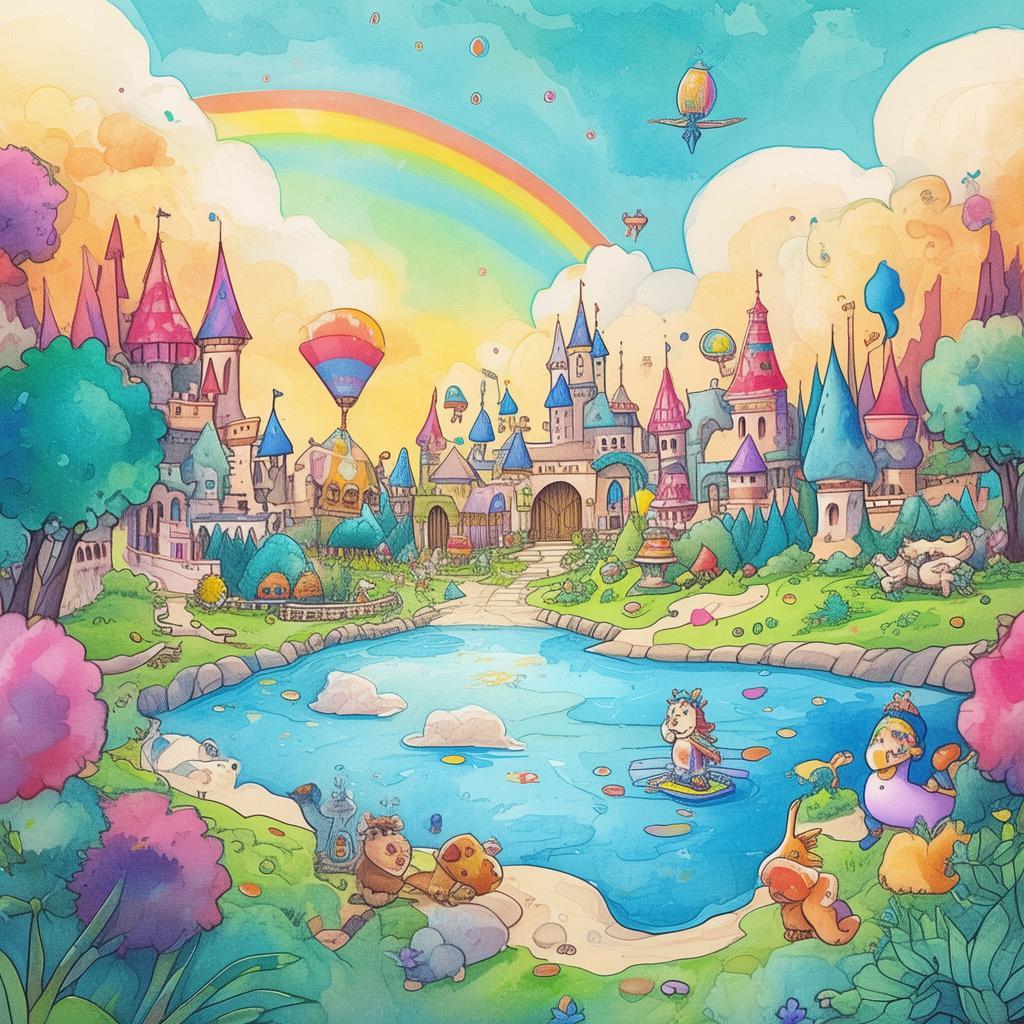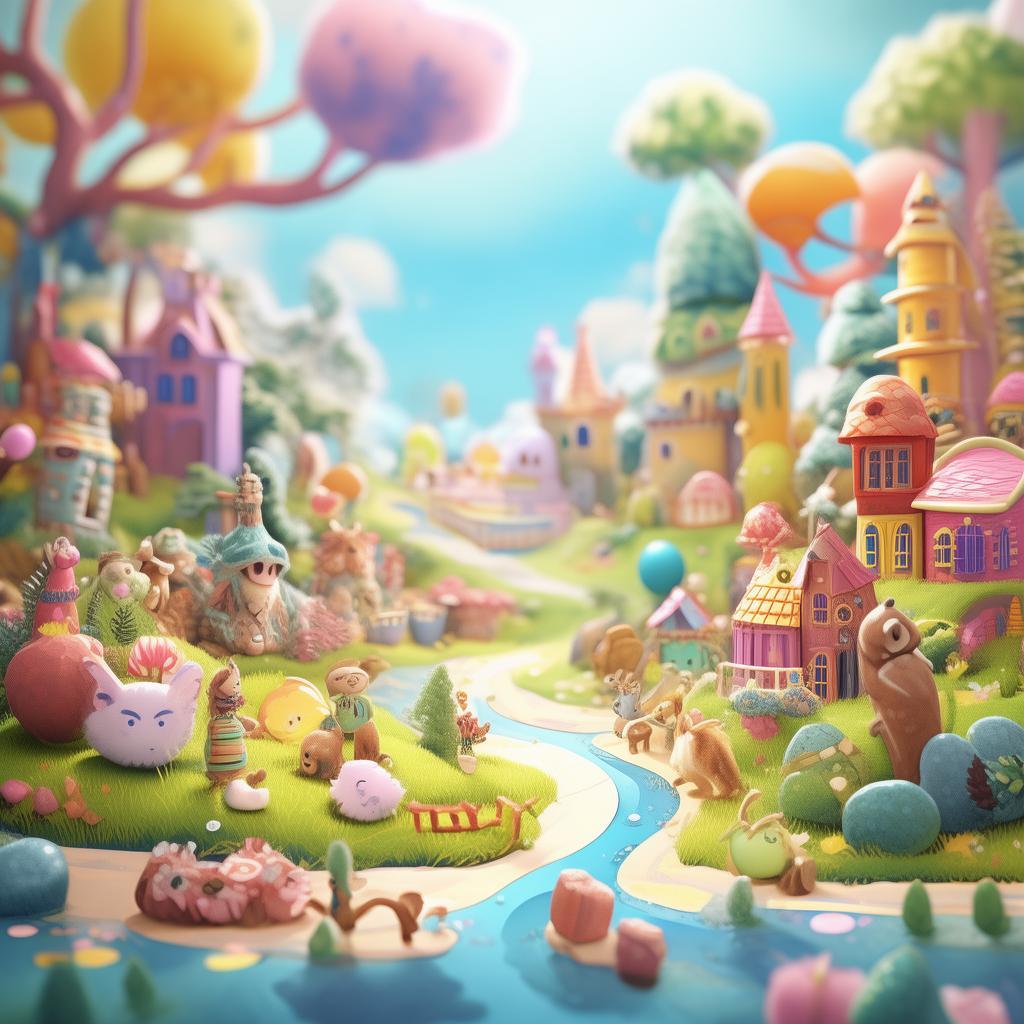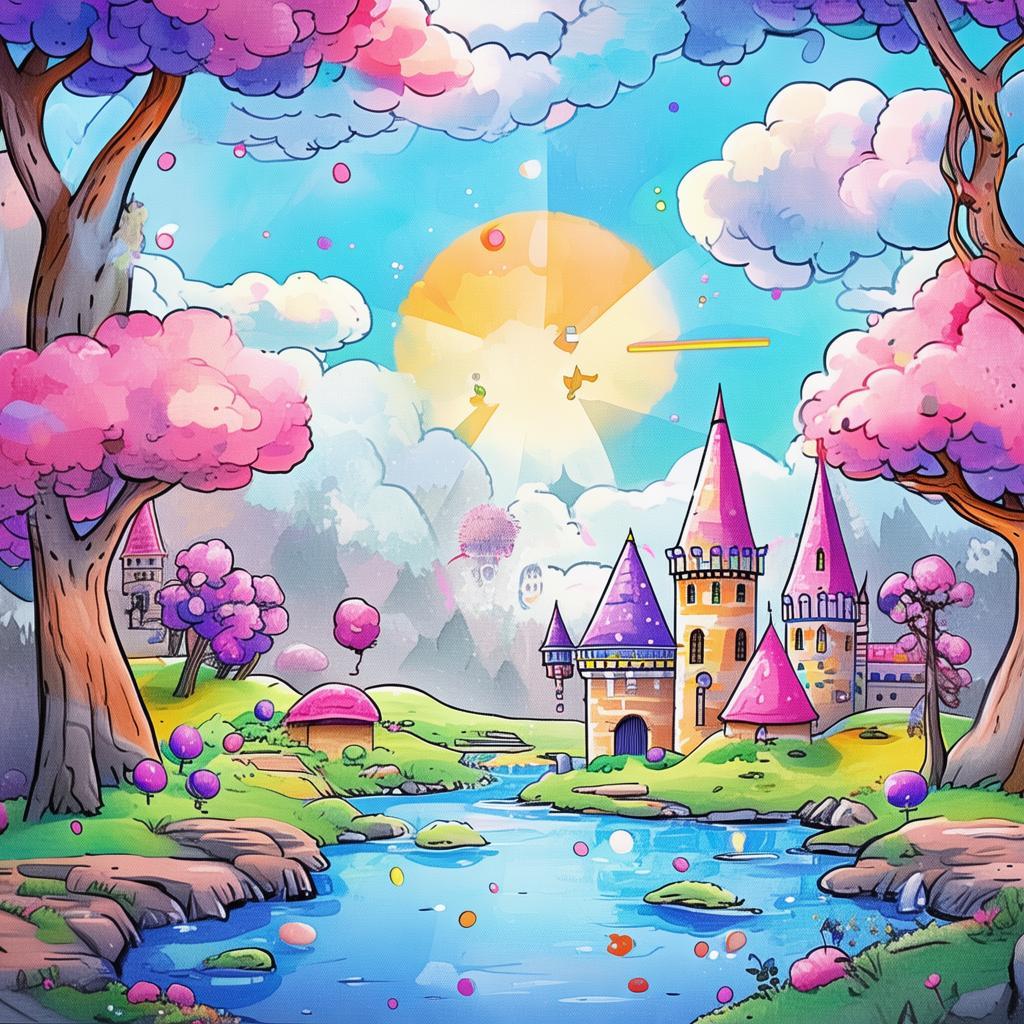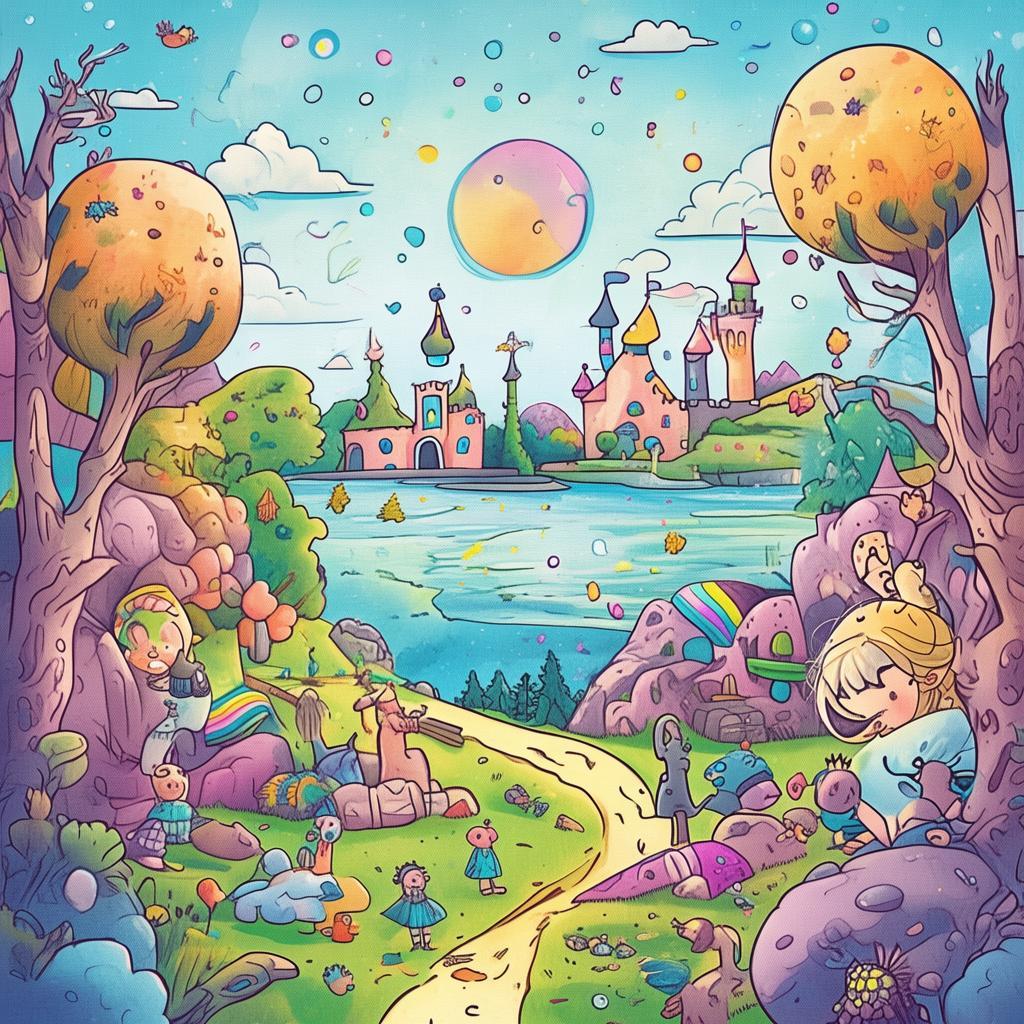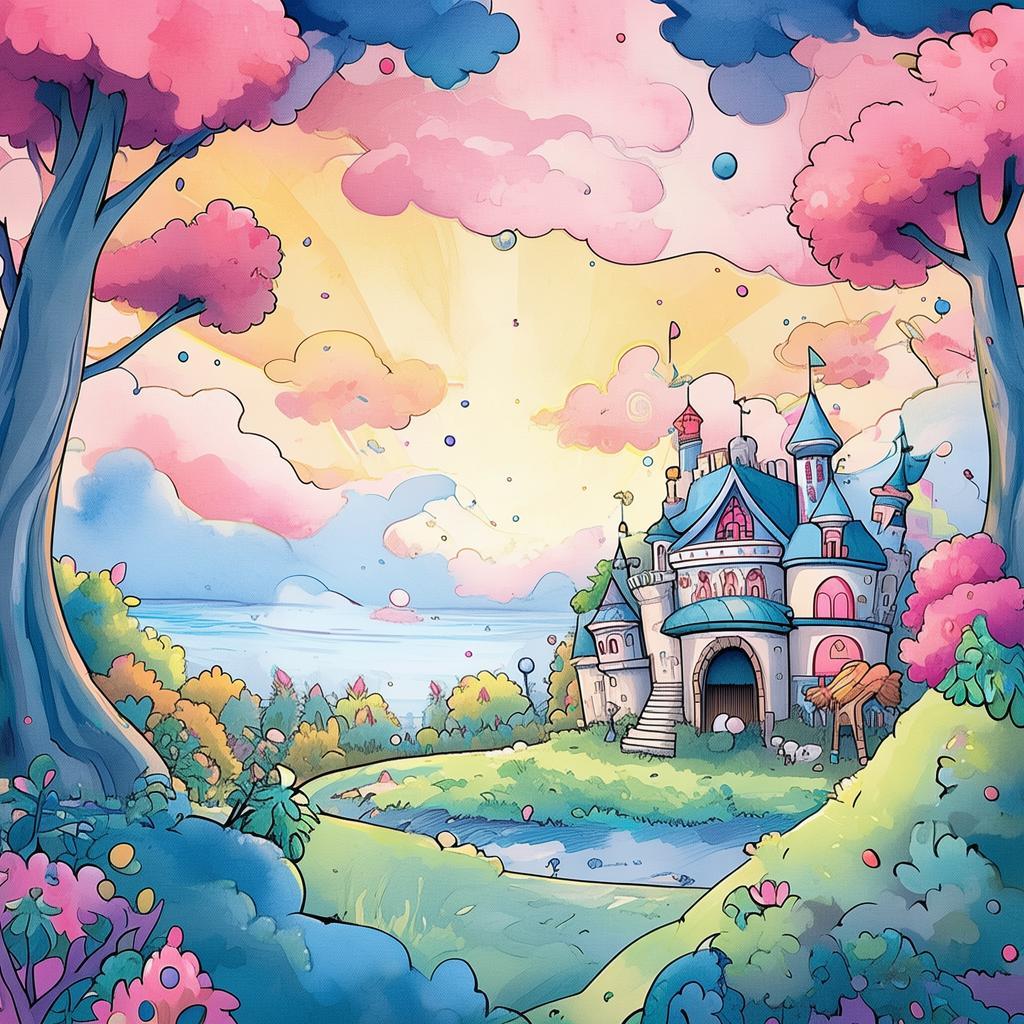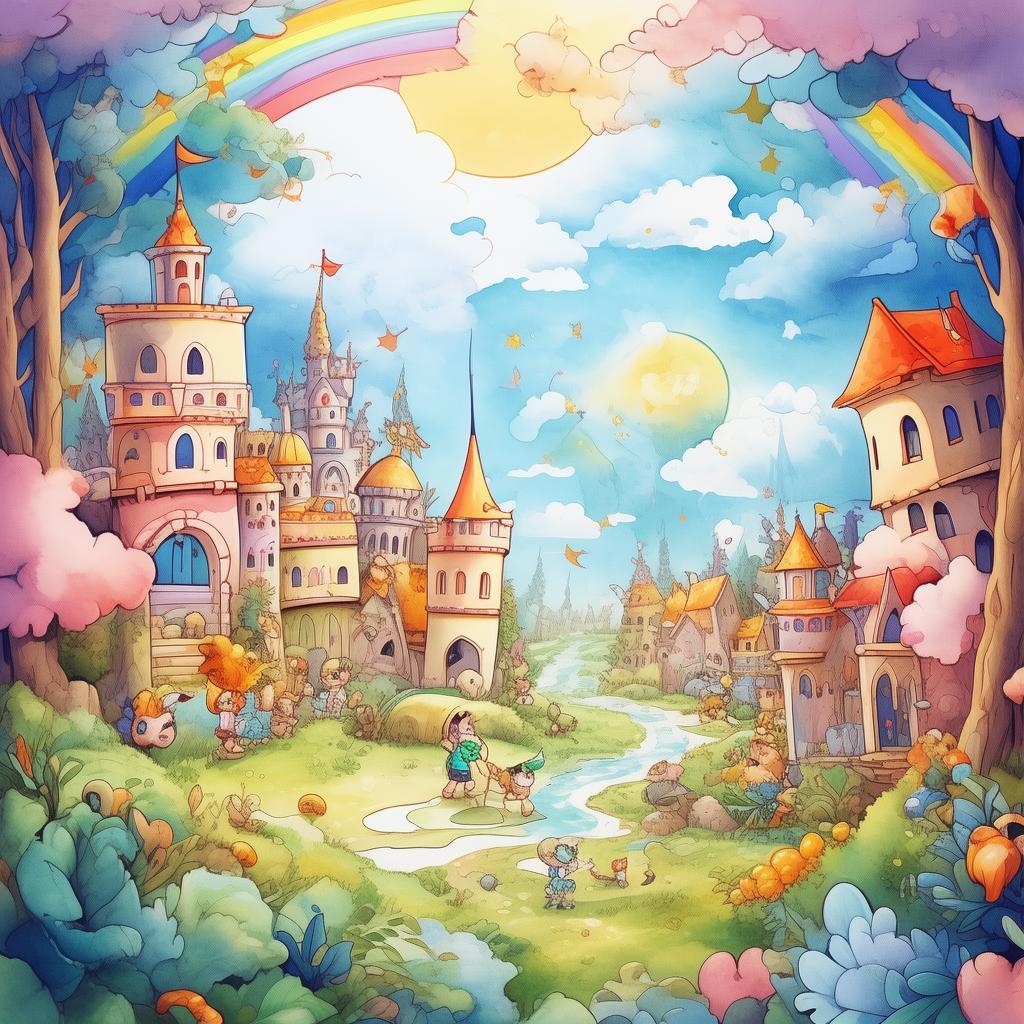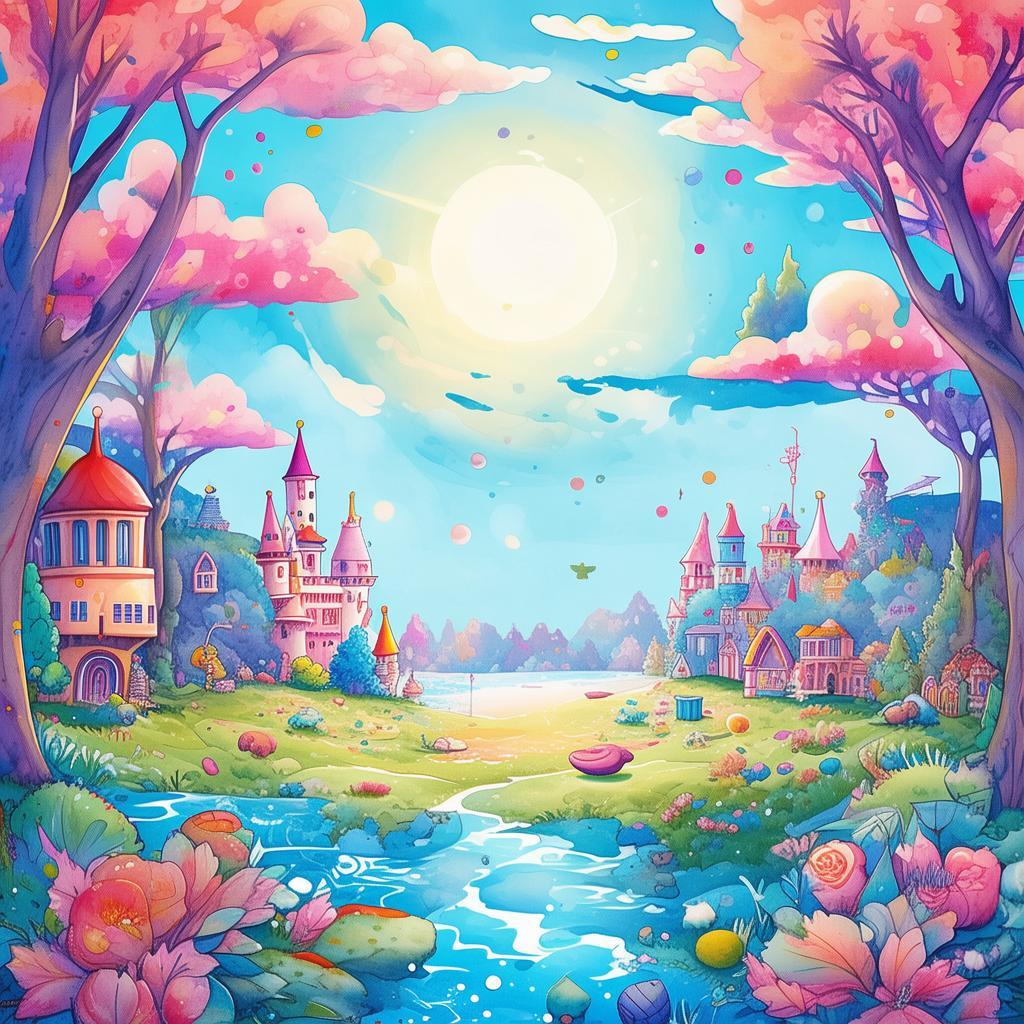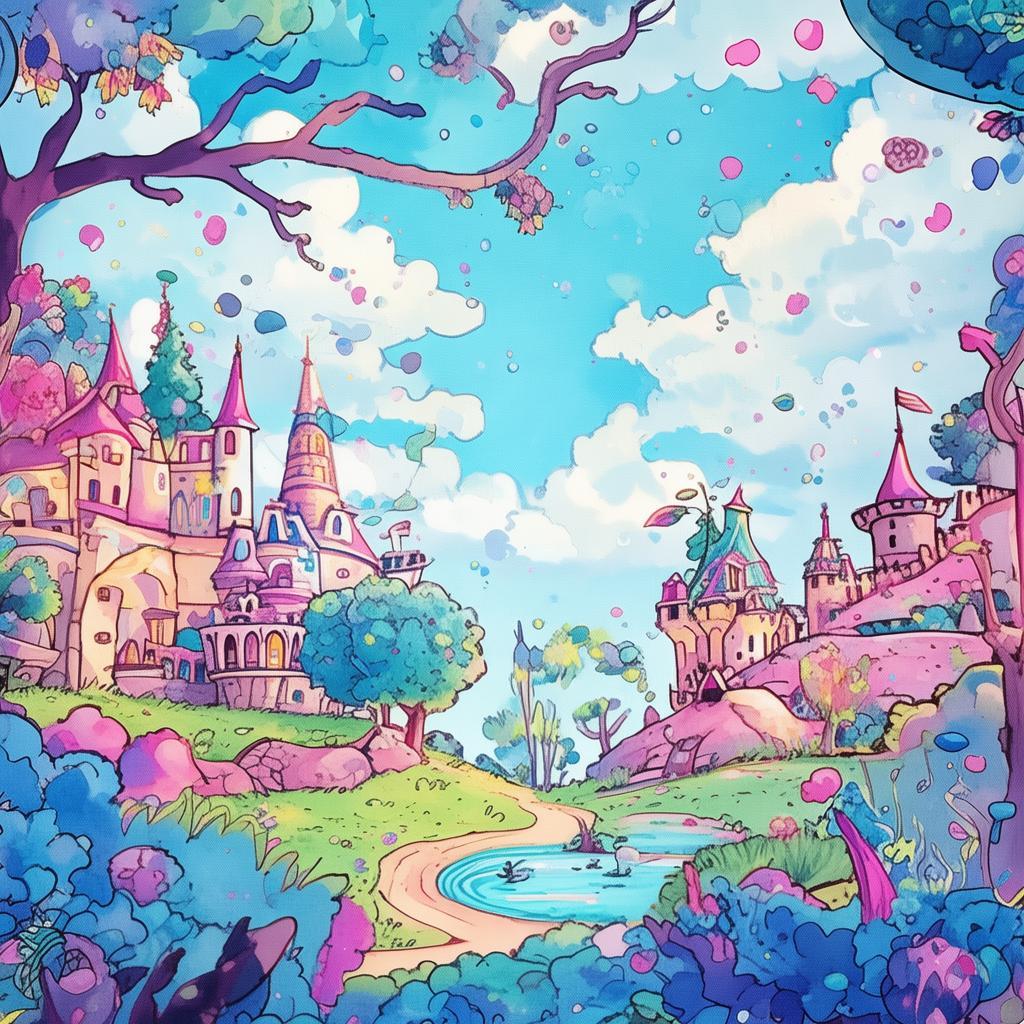The Fanbrush's Choice: A Tale of Art and Conscience
Once upon a time in the quaint village of Artoria, there lived a young artist named Fanbrush. Fanbrush was known for his vibrant, lifelike paintings that brought joy to all who saw them. His talent was unmatched, and he was often sought after by the nobility for their grand estates and private collections.
One sunny afternoon, as Fanbrush was sketching in the garden, he stumbled upon a peculiar object nestled in the roots of an ancient oak tree. It was a small, ornate fanbrush, its bristles shimmering with a soft, iridescent glow. Intrigued, Fanbrush picked it up and felt a strange warmth seep through his fingers.
As he examined the fanbrush more closely, he noticed a small, faint symbol etched into its handle—a triangle within a circle. Without warning, the symbol began to glow brightly, and a soft whisper filled the air. "Paint what you wish, and it shall be yours," the voice echoed in Fanbrush's mind.
The voice was enchanting, and the power of the fanbrush was intoxicating. Fanbrush knew that with this tool, he could create anything he desired. But as he pondered the possibilities, a shadow of doubt crept over him. Could he use this gift for good, or would it lead him down a dangerous path?
Fanbrush's first test came in the form of a local beggar, who had wandered into the village and found himself shunned by the townsfolk. Seeing the beggar's plight, Fanbrush's heart ached. With a stroke of the fanbrush, he painted a small loaf of bread and a bowl of soup. The beggar, seeing the food appear before him, burst into tears of joy and gratitude.
Word of Fanbrush's gift spread quickly through the village. Soon, the nobles and merchants were clamoring for his services. They wanted to have their desires and whims painted into existence. But as Fanbrush continued to grant their wishes, he began to notice a change in himself.
The more he painted, the more he felt a void in his soul. The joy he once took in creating was replaced by a gnawing sense of unease. He realized that while he could create beautiful things, he couldn't create true happiness. The village was becoming a place of greed and want, and Fanbrush felt responsible for it all.
One day, a wise old woman named Elara approached Fanbrush. She had heard tales of the magical fanbrush and its power. "Fanbrush," she said, "the true test of an artist lies not in what they create, but in the choices they make."
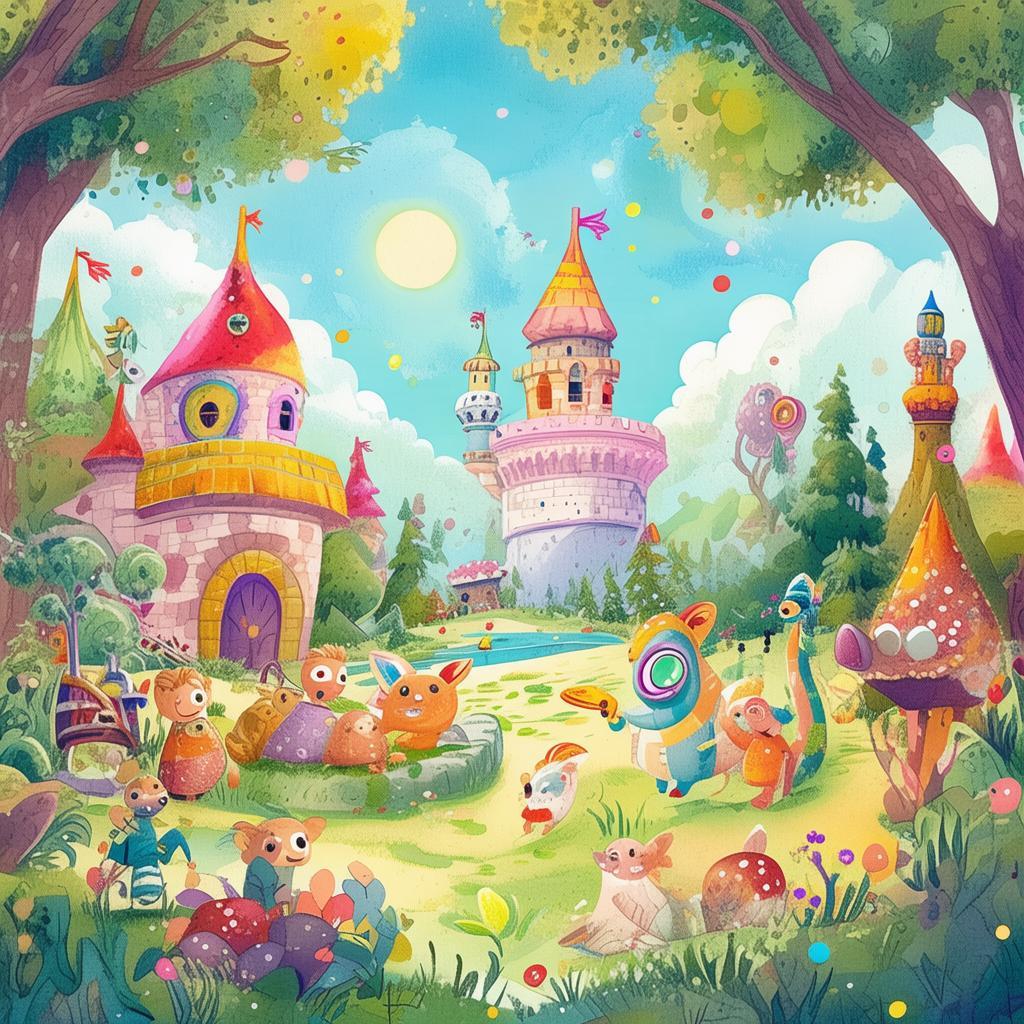
Elara spoke of the ancient code of the artists, a set of moral guidelines that governed their actions. She told Fanbrush that if he were to truly honor his art, he must use his gift wisely and with a clear conscience. She challenged him to make a choice that would define his legacy.
Fanbrush's decision was difficult. He could continue to paint for the villagers, providing them with the trinkets and luxuries they desired, or he could choose to use his gift to improve their lives. He could create wealth, or he could create a community.
After much contemplation, Fanbrush chose the latter. He decided to use his gift to help the villagers grow their crops, to heal the sick, and to build a school for the children. He painted irrigation systems, medicines, and a beautiful, welcoming schoolhouse.
The villagers were at first confused by his actions, but soon they saw the benefits of his choice. The crops flourished, the sick recovered, and the children learned and laughed together. The village began to thrive, and the people of Artoria realized that true happiness came not from material wealth, but from the bonds of community and compassion.
Fanbrush's legend grew, not because of the objects he painted, but because of the change he brought to the village. The magical fanbrush became a symbol of the power of choice and the importance of conscience. And so, in the heart of Artoria, the spirit of Fanbrush's art and conscience lived on, inspiring future generations to choose wisely and to create with a clear heart.
✨ Original Statement ✨
All articles published on this website (including but not limited to text, images, videos, and other content) are original or authorized for reposting and are protected by relevant laws. Without the explicit written permission of this website, no individual or organization may copy, modify, repost, or use the content for commercial purposes.
If you need to quote or cooperate, please contact this site for authorization. We reserve the right to pursue legal responsibility for any unauthorized use.
Hereby declared.
